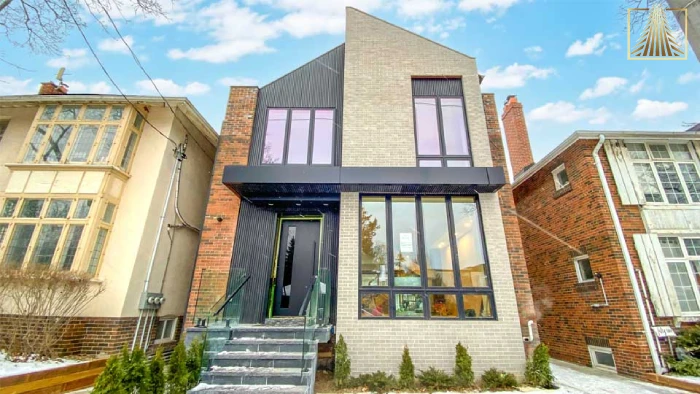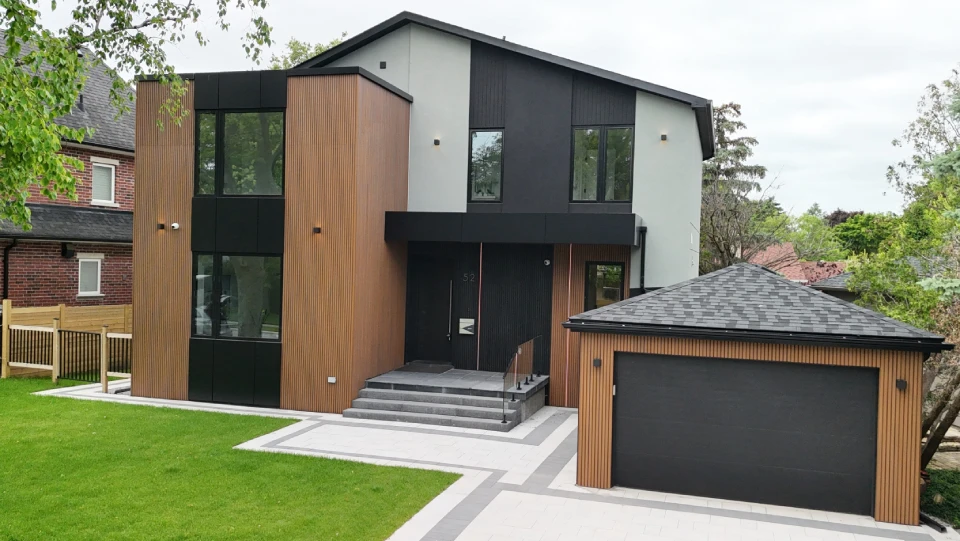Choosing the right exterior residential modern cladding is one of the most important decisions when designing or renovating a home. Cladding not only defines the visual appeal of a house but also plays a key role in protecting it from harsh weather, improving insulation, and enhancing durability. With a variety of materials available, from sleek aluminum panels to classic wood finishes, homeowners have endless options to achieve both style and functionality. In this article, we’ll explore different exterior residential cladding choices and their benefits to help you make the best decision for your home.
The Importance of Exterior Residential Cladding
Modern cladding materials provide more than just an attractive facade. They protect the structure from weather elements, enhance insulation, and improve energy efficiency. The right residential modern cladding can also increase property value while reducing maintenance needs.
Types of Exterior Residential Modern Cladding

1. Aluminium Composite Material (ACM) Cladding
Aluminum Composite Material (ACM) is one of the most popular exterior residential cladding choices. It offers a sleek, modern look and is known for its durability.
- ACM panels are resistant to corrosion, making them an excellent choice for long-term applications.
- Many ACM products are fire-rated, enhancing safety.
- Unlike wood, ACM does not require frequent painting or sealing.
2. Wood-Polymer Composite (WPC) Cladding
Wood-Polymer Composite (WPC) cladding combines the natural appeal of wood with the resilience of Polymer. It is an excellent residential modern cladding choice for those who want a wood-like finish without the associated maintenance.
- Made from recycled wood fibers and plastic.
- Unlike traditional wood, WPC does not warp or attract pests.
- Versatile Design Options – Available in various colors and textures.
3. Natural Wood Cladding
For homeowners who prefer a traditional and natural aesthetic, wood remains a classic exterior residential modern cladding option.
- Wood offers warmth and character that few other materials can match.
- Customizable: Means it Can be painted, stained, or left natural for a rustic look.
- Requires Maintenance: Needs regular sealing or painting to prevent decay and insect damage.
4. Fiber Cement Cladding
Fiber cement is a versatile and durable exterior residential cladding material that mimics the appearance of wood, stone, or brick.
- Fire and Moisture Resistant: Provides excellent protection against extreme weather conditions.
- Low Maintenance: Requires minimal upkeep compared to natural wood.
- Highly Durable: Can last for decades with proper installation.
5. Aluminium Cladding
Aluminium cladding is a modern and stylish option for residential modern cladding, offering excellent strength and versatility.
- Corrosion-Resistant – Ideal for coastal and humid climates.
- Lightweight and Easy to Install – Speeds up construction time.
- Sustainable: Aluminum is 100% recyclable, making it an eco-friendly choice.
All About Benefits of aluminum cladding
6. Combination and Mixed Cladding
Many modern homes incorporate a combination of different exterior residential cladding materials to create a unique and dynamic facade.
- Aesthetic Versatility – Allows homeowners to mix textures, colors, and materials for a striking appearance.
- Enhanced Functionality – Different materials can be used strategically for better insulation and durability.
- Customization – Gives architects and designers more flexibility in their designs.
Choosing the Right Exterior Residential Cladding
When selecting residential modern cladding, consider the following factors:
- Climate: Some materials, like aluminium, are better suited for humid environments, while fiber cement performs well in extreme weather.
- Maintenance: Wood requires more upkeep than ACM or aluminium.
- Budget : Consider long-term savings with durable, low-maintenance options.
Everything about Exterior Design Cost in Toronto
- Aesthetic Preferences: Choose a material that complements the home’s architectural style.
Conclusion
The right exterior residential modern cladding can significantly impact a home’s appearance, durability, and energy efficiency. With numerous options available, homeowners can choose a material that aligns with their needs, budget, and aesthetic preferences. Whether opting for ACM, WPC, wood, fiber cement, aluminium, or a combination of materials, each cladding type offers unique benefits that enhance the value and functionality of modern homes.

